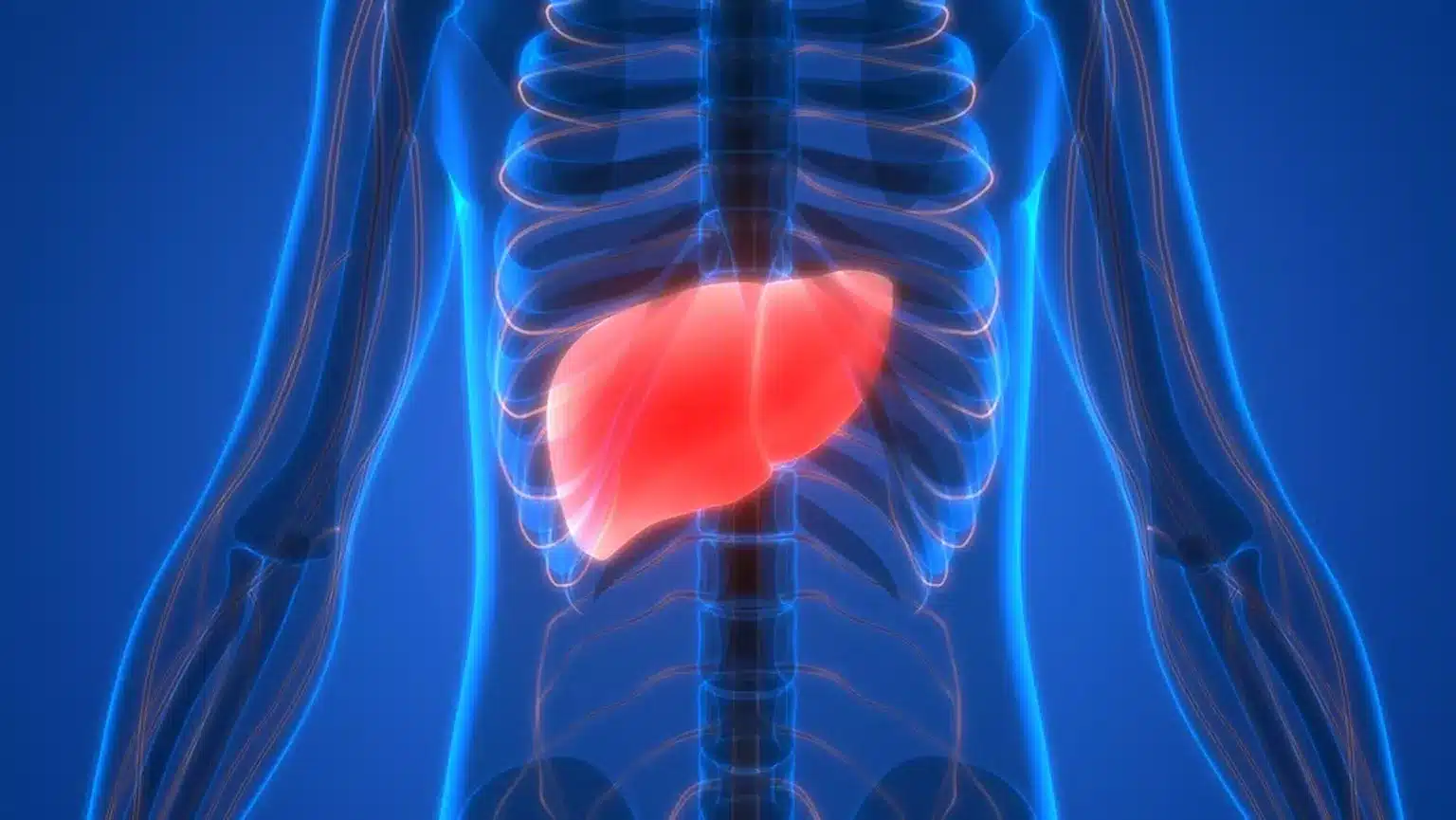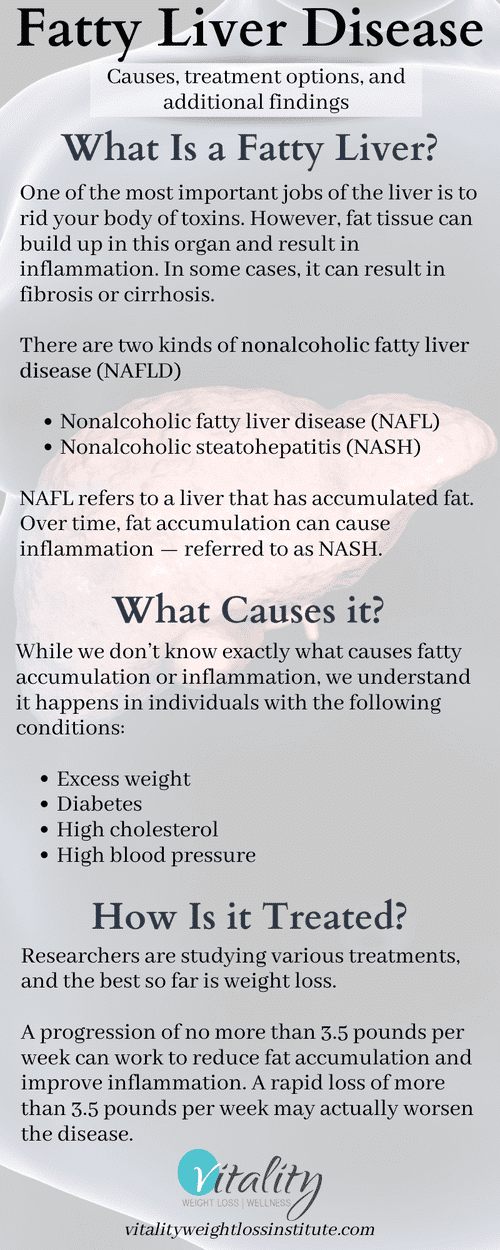According to the Center for Disease Control (CDC), non-alcoholic fatty liver disease is the most common cause of liver disease in the country and is estimated to affect up to 25% of adults in the world. It’s defined by excess fat…
According to the Center for Disease Control (CDC), non-alcoholic fatty liver disease is the most common cause of liver disease in the country and is estimated to affect up to 25% of adults in the world. It’s defined by excess fat accumulation in the liver and usually occurs in individuals with obesity, high blood sugar (such as those diagnosed with diabetes), abnormal cholesterol and triglyceride levels, or high blood pressure. These disorders often come in a cluster — a diagnosable condition referred to as metabolic syndrome. The term “non-alcoholic” is essential in distinguishing it from alcohol-related liver disease, which can also cause excess liver fat.
Here’s what you should know regarding fatty liver disease:
How Weight Loss Prevents Complications Of Fatty Liver
In some instances, excess fat sits in the liver but may not cause liver damage. However, in about one in 20 individuals, excess liver fat triggers chronic liver inflammation (a condition called non-alcoholic steatohepatitis, or NASH). For overweight or obese individuals, the ideal treatment for NASH is weight loss.
A landmark study showed losing 10% body weight can reduce liver fat, resolve inflammation, and potentially improve scarring. More recently, in a meta-analysis published in the Journal of the American Medical Association (JAMA) Internal Medicine, researchers combined data from 22 separate studies that randomized patients to a weight-loss intervention or a control arm to take a thorough examination of the effect of weight loss on non-alcoholic fatty liver disease.
This meta-analysis and additional studies confirmed that weight loss via behavioral programs, medication, or surgery could successfully treat NASH.
Lifestyle’s Role In Good Health
Diet and exercise are primary treatments for non-alcoholic liver disease; in fact, 150 minutes of heart-pumping physical activity a week is recommended. While no diet is regarded as the end-all-be-all of effectiveness, those that emphasize whole foods and vegetables, such as the Mediterranean diet, are excellent options. Regardless of the plan, lifestyle changes should be sustainable.
Non-alcoholic liver disease is rapidly becoming more prevalent as obesity becomes more widespread. It is also a widely-underdiagnosed condition since it usually causes no symptoms. However, increased awareness can lead to early diagnosis and prevention of severe health complications down the road. Fortunately, ongoing research strives to define how to identify those who are at risk and develop new medications to treat NASH.





